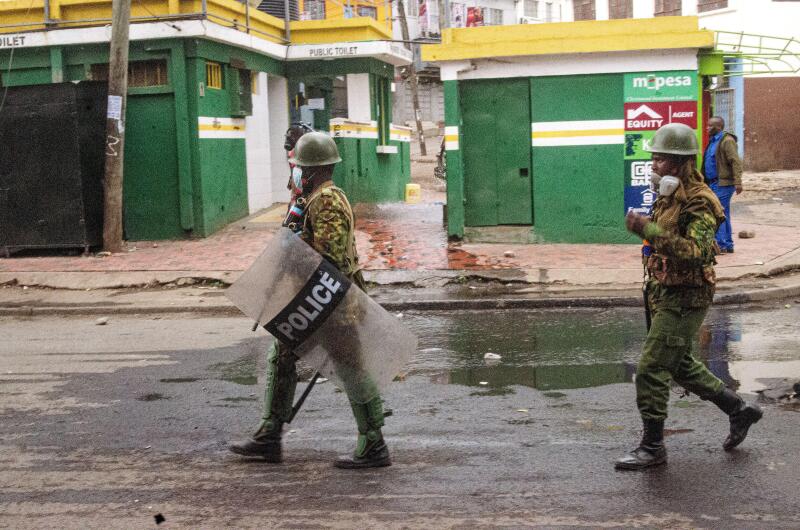
Emerging market citizens and investors ought to want the same thing: a thriving economy. In practice, their interests and desires are all too often opposed.
Recent civil unrest in Kenya, in opposition to proposed tax increases, is a perfect example of the narrow and rocky paths developing country governments have to tread.
Not long ago Kenya, a country of 52m people whose gross government debt is expected to reach $98bn this year, or 73% of GDP, was seen by EM bond investors as at risk of default.
The government wanted to raise an extra Ksh346.7bn ($2.7bn) with a new finance bill.
But it was met by protests, which turned violent. Protestors set fire to parliament and dozens of people were killed, including some by security forces. Then President William Ruto caved in and shelved some of the tax raises in the bill.
Considering that they included a 16% tax on bread, as well as taxes on cars, mobile payment services and cooking oil, it is not surprising they were unpopular.
But the crisis leaves Kenya’s government having to try to find the money elsewhere.
To make matters worse, the finance bill was a central pillar of reforms demanded by the International Monetary Fund as part of its lending programme to Kenya.
Before the protests, the IMF had said the finance bill showed Kenya was taking “decisive” steps towards fiscal consolidation.
Countries with IMF programmes have to stick to the Fund's rules to get each part of their funding — it is money with strings attached.
Many other African sovereigns rely on concessional financing like that provided by the IMF.
While no two countries are the same, others will watch Kenya's travails with concern. They will have reforms to enact, that may risk the same sort of hostility.
Kenya's citizens were not just angered and stressed by the tax bill's threat to their livelihoods. They are galled that 59% of government revenue, as of June 2023, was going to service debt.
About 53% of the debt is external, leading critics to berate the government for favouring overseas investors over its own people.
Unfortunately, despite the population's understandable grievances, Ruto's attempt to assuage them will now alarm the IMF and investors.
Kenya's sovereign bond yields have risen since the protests. The $1.5bn 9.75% 2031 note, which Kenya issued in February to help it pay off a bond which matured in June, yielded 10.6% on Tuesday, according to Tradeweb, from around 9.75% in early June.
Squaring the circle
Kenya will have to come up with other ways to plug its fiscal gap.
It has already signalled it may have to massively increase borrowing — not something the IMF or investors will want to hear, considering how precarious its debt position has been in the last few years.
Or it can cut spending. Austerity is always unpopular with voters and developing economies like Kenya need to spend money to develop further. It is difficult, noted one economist, for governments in EM to find any spending they can actually cut.
A watered down version of the finance bill may still upset the people of Kenya and may not be good enough for the IMF.
Kenya is in a bind. It has no good options.
The situation illustrates how difficult a road many EM governments follow, in search of stability and growth.
IMF money can be a vital source of financing, helping countries pay for development and avoid debt distress. Private creditors like bondholders are another fruitful, if more expensive, avenue.
Keeping these lenders onside is essential to give the economy the best chance of success.
But when that requires painful sacrifices, no government can tolerate riots and violence, particularly in a democracy where it can be voted out at the next election.
Balancing the needs and wants of a population and overseas lenders is a difficult task. Erring too far one way or another can have tragic, real life consequences.
Making either constituency happy is impossible. The best that can be hoped for is to keep them both from open revolt.
